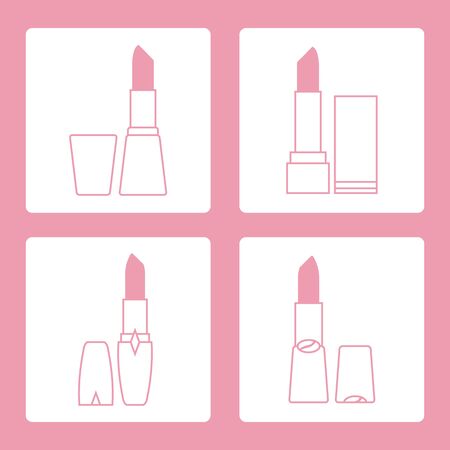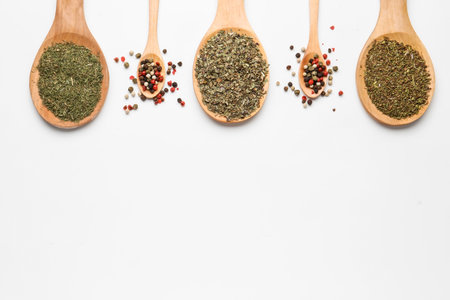1. Retinol: The Gold Standard in Anti-Aging
When it comes to anti-aging skincare, retinol is often considered the gold standard—especially for women over 40. This powerhouse ingredient is a derivative of vitamin A and has been extensively studied for its ability to improve skin health and appearance.
What Does Retinol Do?
Retinol works by speeding up cell turnover, which means it helps your skin shed old, dull cells and replace them with fresh, new ones. It also boosts collagen production—the protein responsible for keeping your skin firm and plump. As we age, our natural collagen levels decline, leading to wrinkles and sagging. Retinol helps slow down this process.
Key Benefits of Retinol for Women Over 40
| Benefit | How It Helps Your Skin |
|---|---|
| Smooths Fine Lines | Reduces the appearance of crow’s feet and smile lines |
| Boosts Collagen | Improves firmness and elasticity |
| Refines Skin Texture | Makes skin look more even and radiant |
| Unclogs Pores | Prevents breakouts and minimizes pore size |
How to Use Retinol Safely
If youre new to retinol, its best to start slow. Use a pea-sized amount just two to three times a week at night, then gradually increase frequency as your skin builds tolerance. Always follow up with a moisturizer to reduce dryness or irritation. And don’t forget: sunscreen is non-negotiable! Retinol can make your skin more sensitive to the sun.
Pro Tip:
Look for products labeled “encapsulated retinol” if you have sensitive skin. These formulas release the ingredient slowly, making them gentler but still effective.
2. Vitamin C: Brightening and Protecting the Skin
Vitamin C is one of the most essential anti-aging ingredients for women over 40. Known for its antioxidant properties, this powerful nutrient helps your skin look brighter, more even, and youthful by targeting some of the most common signs of aging.
Why Vitamin C Matters After 40
As we age, our skin naturally loses collagen and becomes more susceptible to sun damage, dark spots, and a dull complexion. Vitamin C helps combat these changes by promoting collagen production, reducing hyperpigmentation, and protecting against environmental stressors like pollution and UV rays.
Key Benefits of Vitamin C
| Benefit | How It Helps Your Skin |
|---|---|
| Brightens dull skin | Gives a natural glow and improves radiance |
| Fades dark spots | Reduces appearance of age spots and hyperpigmentation |
| Evens out skin tone | Helps with discoloration and blotchiness |
| Boosts collagen production | Improves firmness and reduces fine lines |
| Protects from free radicals | Shields skin from environmental damage like UV rays and pollution |
How to Use Vitamin C in Your Routine
You can find Vitamin C in many skincare products such as serums, moisturizers, and creams. For best results, use a Vitamin C serum in the morning after cleansing but before applying sunscreen. Look for formulations with L-ascorbic acid (a highly effective form of Vitamin C) at concentrations between 10%–20%.
Tips for Choosing a Good Vitamin C Product:
- Opt for air-tight, dark-colored packaging to prevent oxidation.
- Avoid mixing with products that contain benzoyl peroxide or niacinamide unless formulated together.
- If you have sensitive skin, start with a lower concentration to avoid irritation.
Adding Vitamin C to your daily skincare routine can make a noticeable difference in how your skin looks and feels—brighter, firmer, and better protected against aging elements.

3. Peptides: The Building Blocks of Youthful Skin
If you’re over 40 and looking to boost your anti-aging skincare routine, peptides are a must-know ingredient. Think of peptides as tiny messengers that tell your skin to behave like it did when it was younger. These short chains of amino acids help support the skin’s natural proteins—especially collagen and elastin—which are essential for keeping your skin firm, smooth, and plump.
How Peptides Work in Your Skin
As we age, our bodies produce less collagen and elastin, leading to fine lines, sagging, and a loss of elasticity. Peptides step in by signaling the skin to produce more of these vital proteins. They can also help repair damaged skin, improve texture, and increase hydration levels. Unlike some harsher anti-aging ingredients, peptides are generally gentle and suitable for all skin types.
Benefits of Peptides in Skincare
| Benefit | What It Means for Your Skin |
|---|---|
| Boosts Collagen Production | Helps reduce wrinkles and improve firmness |
| Supports Elastin | Enhances elasticity and bounce |
| Aids Skin Repair | Smooths rough texture and evens tone |
| Mild & Non-Irritating | Suitable for sensitive or mature skin |
Common Types of Peptides in Skincare Products
- Matrixyl (palmitoyl pentapeptide): Helps stimulate collagen production.
- Copper peptides: Known for their wound healing and firming abilities.
- Argireline: Sometimes called “Botox in a jar,” it helps reduce facial tension and fine lines.
If you’re building an anti-aging routine, look for serums or moisturizers with peptides listed high on the ingredients list. They work best when used consistently over time and pair well with other ingredients like hyaluronic acid and antioxidants. Peptides might not give overnight results, but they’re a powerful ally in keeping your skin looking youthful well into your 40s and beyond.
4. Hyaluronic Acid: Deep Hydration for Plump Skin
Hyaluronic acid is a game-changer when it comes to anti-aging skincare, especially for women over 40. As we age, our skin naturally loses moisture, leading to dryness, fine lines, and a loss of that youthful “bounce.” That’s where hyaluronic acid comes in—it acts like a moisture magnet, drawing water into the skin and locking it in.
What Makes Hyaluronic Acid So Special?
This ingredient can hold up to 1,000 times its weight in water, making it one of the most effective hydrators available. It works well for all skin types but is especially beneficial for dry or mature skin. If your skin feels tight, dull, or looks tired, hyaluronic acid can help restore that fresh, dewy look.
Benefits of Hyaluronic Acid for Women Over 40
| Benefit | How It Helps |
|---|---|
| Intense Hydration | Keeps skin moisturized and soft throughout the day |
| Plumps Fine Lines | Smooths out wrinkles by hydrating from within |
| Improves Elasticity | Supports firmer, more resilient skin texture |
| Dewy Glow | Gives skin a radiant, youthful appearance |
How to Use It in Your Skincare Routine
You’ll find hyaluronic acid in serums, moisturizers, and even masks. For best results, apply it on damp skin and follow with a moisturizer to seal in the hydration. Look for products labeled with “sodium hyaluronate,” a form of hyaluronic acid that penetrates deeper into the skin.
If you’re aiming for smoother, plumper skin without invasive procedures, adding hyaluronic acid to your daily routine is an easy and effective step toward achieving that goal.
5. Niacinamide: The Multitasking Ingredient Every Woman Needs
As we age, our skin naturally becomes drier, thinner, and more prone to fine lines, dullness, and irritation. That’s where niacinamide, also known as vitamin B3, steps in as a powerful ally for women over 40. This water-soluble vitamin works with your skin to visibly improve its texture and tone—without harsh side effects.
What Makes Niacinamide So Special?
Niacinamide is a multitasking ingredient that delivers a wide range of benefits tailored to mature skin. Here’s what it can do:
| Benefit | How It Helps 40+ Skin |
|---|---|
| Reduces Fine Lines | Stimulates collagen production to smooth wrinkles and fine lines |
| Improves Elasticity | Tightens sagging skin by strengthening the skin’s barrier function |
| Evens Skin Tone | Fades age spots and hyperpigmentation for a brighter complexion |
| Minimizes Pores | Helps regulate oil production and refine the look of pores |
| Soothes Inflammation | Calms redness and irritation often found in aging or sensitive skin |
How to Add Niacinamide into Your Routine
You’ll find niacinamide in serums, moisturizers, toners, and even some cleansers. For best results, choose a serum with 5%–10% niacinamide concentration. Apply it after cleansing and before moisturizing, morning and night.
A Few Tips:
- Pair it with hyaluronic acid: for added hydration boost.
- Avoid using high concentrations with vitamin C: unless formulated together by the brand.
- Sensitive skin? Start with a lower percentage (around 2–5%) to build tolerance.
The Bottom Line on Niacinamide
If you’re looking for one ingredient that does it all—hydration, brightening, anti-aging, soothing—niacinamide might just be your new go-to. It’s gentle yet effective, making it perfect for women navigating the changes that come with skin over 40.


